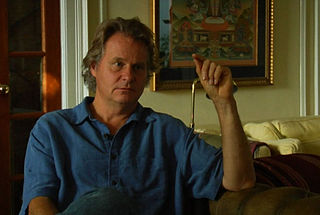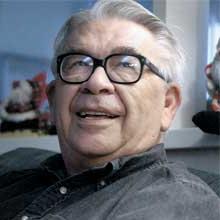A Quote by Gaston Bachelard
Related Quotes
But the past does not exist independently from the present. Indeed, the past is only past because there is a present, just as I can point to something over there only because I am here. But nothing is inherently over there or here. In that sense, the past has no content. The past - or more accurately, pastness - is a position. Thus, in no way can we identify the past as past
We learn in the past, but we are not the result of that. We suffered in the past, loved in the past, cried and laughed in the past, but that's of no use to the present. The present has its challenges, its good and bad side. We can neither blame nor be grateful to the past for what is happening now. Each new experience of love has nothing whatsoever to do with past experiences. It's always new.
Organismic awareness is awareness of the Present only - you can't taste the past, smell the past, see the past, touch the past, or hear the past. Neither can you taste, smell, see, touch or hear the future. In other words, organismic consciousness is properly timeless, and being timeless, it is essentially spaceless.
With the collision of the Shoemaker comet into Jupiter, the era of uniformitarian orthodoxy must come to an end. Minds that have been closed for nearly half a millennium can now be opened to see what really has happened to our planet in the past -- and that past is not as distant as we might suppose.
It is not the literal past that rules us, save, possibly, in a biological sense. It is images of the past. Each new historical era mirrors itself in the picture and active mythology of its past or of a past borrowed from other cultures. It tests its sense of identity, of regress or new achievement against that past.







































